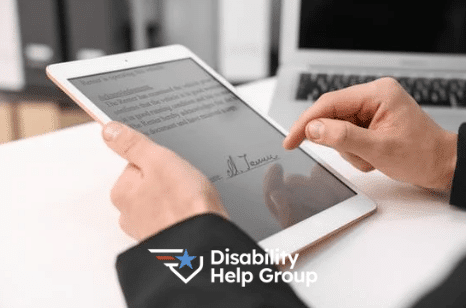VA Benefits Appeal. To win a VA disability claim, a veteran must prove all elements. Generally, VA will approve a VA benefits claim when a veteran proves the following:
- In-service event, disease or injury,
- Current disability, and
- Medical nexus between the in-service event and the current disability.
After you submit your claim, VA is obligated to issue a decision. Based on the evidence, VA may decide to approve your claim completely. Alternatively, VA may either deny the claim outright, or grant your benefits at a low disability rating. Regardless, veterans have the right to appeal any VA benefits decision to a higher authority.
What is the point of an appeal?
VA decision-makers are not perfect. They often make mistakes. For a disabled veteran who is barely making ends meet, VA’s mistakes can be costly. This is why Congress created the appeals system. It gives veterans a fighting chance to correct VA’s mistakes without losing years of benefits.
VA benefits appeals are great because they preserve the earliest effective dates. Take the example of J. Stone, who filed a claim for PTSD in 2011. VA denied his claim in 2013 because they could not confirm the traumatic in-service event. His friends told him to just file another claim. Instead, he consulted the experts at Disability Help Group (DHG).
A DHG representative helped him file an appeal along with evidence of the in-service event. In 2015, VA decided the appeal in Mr. Stone’s favor. As a result, he received a 70% rating effective 2011, the date he filed his claim. He received
Appeals in the Legacy System
The Legacy system refers to the VA appeals structure for decisions issued prior to February 19, 2019. When VA first denies a claim in Legacy, the veteran may appeal with a Notice of Disagreement (NOD). The deadline to file a legacy NOD is 1 year from the date of the decision.
When you file a timely NOD, you are asking a senior VA officer to overrule the previous decision. If the VA agrees with you, then it will issue a new decision awarding benefits. If not, VA will issue a Statement of the Case (SOC) to explain why the previous decision should stand.
Fortunately, an SOC is not the end of the road. Using a VA Form 9, you can appeal an SOC to the Board of Veterans’ Appeals (the Board). Unlike the lower decision, you have only 60 days to appeal an SOC. A VA Form 9 is a request for a Veterans Law Judge to take a fresh look at your case. If the judge finds in your favor, he/she will award benefits effective the date you first filed. If the judge finds against you, then you can appeal to the U.S. Court of Appeals for Veterans’ Claims.
The Appeals Modernization Act changed everything
Any decisions issued on or after February 19, 2019 fall within the Appeals Modernization Act (AMA). If VA denies your claim, or approves it with a very low rating, you can appeal it by filing one of these forms:
- VA Form 20-0995 Supplemental Claim, 20-0996 Request for Higher Level Review, or 10182 Notice of Disagreement to the Board of Veterans’ Appeals
Each lane has its pros and cons. Visit this link for more details [Link to the AMA article].
What’s the downside of an appeal?
First, a VA benefits appeal can take a very long time. Take a look at the search results when you Google “VA appeals backlog.” Prior to the AMA, VA took an average of 2.5 years to process appeals.
Second, you may have to appeal several times to get the job done. If your first appeal is not successful, then you should appeal to a higher tribunal (like the Board of Veterans’ Appeals). When you believe in your claim, you should never give up. Don’t let VA win.
Hire an expert to give yourself the best chance to win
Every VA benefits appeal is different. The best indicator of success is having an experienced representative. This is a very complex system. Most veterans are not equipped to force VA to change a decision. Some cases already have the evidence needed to win, but are lacking a good legal argument. Other cases lack both evidence and argument. An experienced representative can plug the holes in your case.
At DHG, our experts review each case with a fine-toothed comb. This is how we figure out the best path forward. We don’t just file a VA benefits appeal and then wait around for VA to act. Instead, we actively develop winning evidence and arguments to deliver for our clients.
Do you need help with your VA benefits appeal? Contact the experts at DHG for a free consultation.
Disability Help Group, Call Now for a Free Case Review, 800-700-0652
Make sure you start your claim the right way and apply for all the benefits you deserve. Contact us now for a free consultation.
Get Help Now
Call, 1-800-700-0652
Because memory deficits are common VA TBI residuals, a veteran should always have an advocate. Disability Help Group specializes in TBI cases and is here to answer your questions now.
- What is the Criteria for 70% TBI Disability Rating?
- TBI C&P Exam
- How Does VA Rate TBI?
- How are PTSD and TBI Rated Together?
- Can I Get TDIU for Agent Orange Exposure?
- What is VA Permanent and Total Disability?
- Can I Work and Get TDIU?
- Can I Get TDIU for PTSD?
- VA Disability Rating for PTSD
- VA Permanent & Total Disability
- Can I Get VA 100% for Blue Water Exposure?
Additional Information
- Schedule of Rating for Neurological Conditions
- VA Research on TBI
- Traumatic Brain Injury Information Page, National institute of Neurological Disorders and Stroke
- Traumatic Brain Injury Report, Department of Defense Special Report







